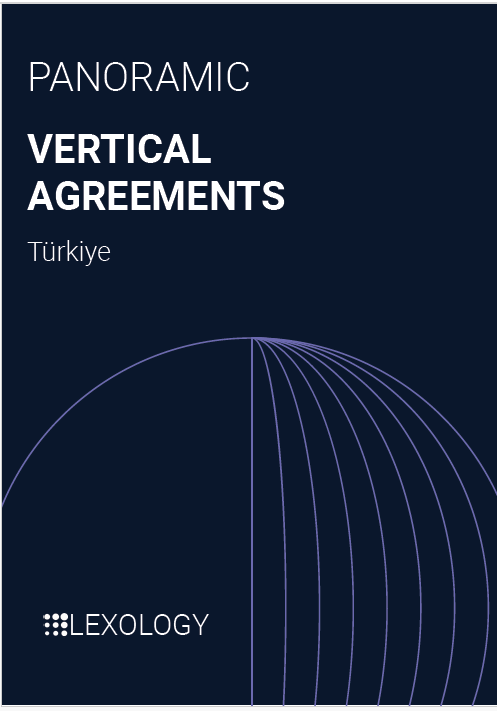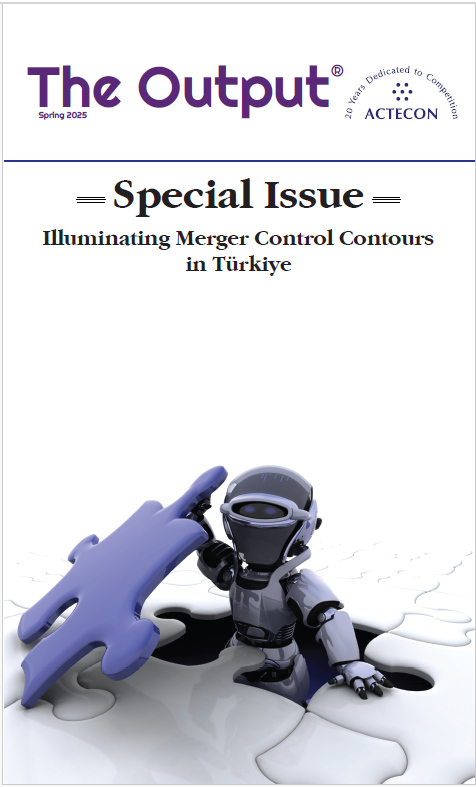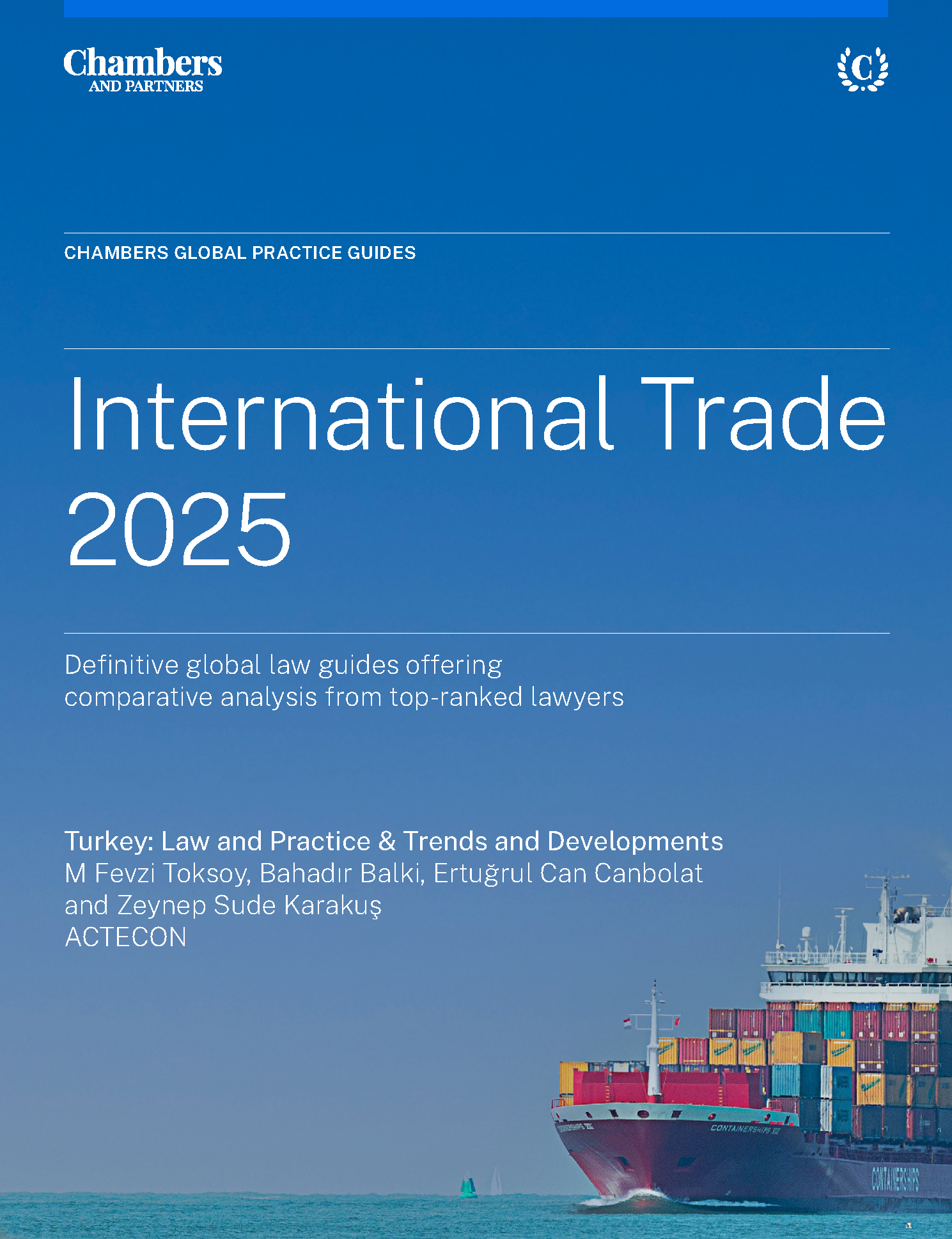Turkish Safeguard Legislation from the Perspective of the Latest PET Case
| International Trade

Turkish Safeguard Legislation from the Perspective of the Latest PET Case
Article by Ertuğrul Can Canbolat, Cansı Çatak and Mehmet Salan
On 16 January 2018, the Turkish Ministry of Economy ("Ministry") published a new regulation which contains the rules and procedures regarding the application, allocation and usage of the tariff quotas to be issued with regards to the imports of polyethylene terephthalate (having a viscosity number of equal to or more than 78 ml/g) listed under 3907.61.00.00.00 CN Code ("PET").
Having stated that (i) the latest approach pursued by Turkey in the safeguard investigations plays a crucial role for the exporters and (ii) the subject product is of great significance for industries involved in packaging of food & drinks, cosmetics, detergents and other chemicals as well as those involved in manufacturing of photographic films & x-rays, polyester stable fibers & yarns, plastic plates, rubber cable and seatbelt; this Article will briefly summarize first the Turkish safeguard legislation and then the PET case.
A Brief Explanation of the Turkish Safeguard Legislation
The Regulation on Safeguard Measures for Imports ("Regulation") and the Decree on Safeguard Measures for Imports ("Decree") which prescribe the main aspects of Turkish safeguard investigations and safeguard measures –such as the definitions and procedures of a safeguard investigation– empower the General Directorate of Imports ("General Directorate") to initiate either a safeguard investigation on its own initiative or upon a written complaint by the Turkish domestic industry.
Article 1 of the Regulation provides that where a product is imported in such increased quantities and under such conditions as to cause or threaten to cause serious injury to the domestic producers producing like or directly competitive products, the Ministry may remedy this actual serious injury. In other words, the main legislation governing trade remedies sets out the following fundamental conditions to impose trade measures:
- an increase in the quantity of imports of the concerned product and
- the existence or threat of serious injury to the domestic industry.
Therefore, in any case, there has to be sufficient evidence regarding the representativeness of the domestic industry and the serious injury to the domestic industry caused by the imports of a specific product. Following the initiation of the investigation and announcement of the application form, any parties have 20 days to fill in the application form to be deemed as "interested parties". After such an application, a username and password to access the questionnaire are provided by the Directorate General to interested parties. Further, the interested parties are required to complete and submit the relevant questionnaire online within 30 days from the date of issue of the initiation communiqué. All responses and comments, along with its supporting documents, shall be submitted in Turkish; otherwise the Ministry will not accept the application. On the other hand, as there is no obligation or fine set out for non-cooperation, any party may prefer not to share its confidential data with the Ministry; however, in such cases, the investigation will be concluded on the basis of the available data.
The Turkish safeguard measure legislation provides that safeguard investigations should be completed within nine months from the initiation date; however, this deadline may be extended for a further six months. During this period, the Ministry may decide to issue its preliminary determination and accordingly, recommend to the Council of Ministers to impose a provisional duty.
In cases where the Ministry concludes that the subject product is imported in increasing quantities and this causes or threatens to cause serious injury to the domestic producers of a like or directly competitive product, the Ministry shall consider Turkey's interest while determining the safeguard measures, which may be in the form of customs duties, additional financial charges, restrictions on quantity/value of imports, tariff quotas or a combination of these. The duration of a safeguard measure shall not exceed four years (which is extendable if the safeguard measure continues to be necessary to prevent or remedy serious injury and there is evidence that the domestic producers are adjusting to the conditions of the internal market). The total period of application of a safeguard measure shall not exceed 10 years for WTO members.
Summary of the PET Case
Pursuant to the application submitted by the Turkish domestic producers for the continuation of the safeguard measure concerning the PET, the Ministry had decided to initiate a safeguard investigation on 17 June 2017. In its application, the domestic industry had also provided information about the import statistics and its economic indicators. The domestic industry had further claimed that within the scope of their efforts to increase their product variety during the measure period:
- at the beginning of 2013, works were carried out by the domestic industry to produce highly profitable and export-oriented products for special use and ensuring their use also in the internal market. In this context, the domestic industry started to manufacture products preferred by end-users abroad.
- the tank space project for the liquid raw materials has been completed and a new solid waste recovery facility has been built.
- in 2016, products for the purpose of special use have been produced.
- the projects for the production of special product are still ongoing.
In conclusion, the domestic industry argued in its application that;
- the safeguard measure for the imports of the concerned product was first implemented on 8 November 2011 and in 2014, the duration of the measure was extended. Following the extension of the implementation of the measure, the domestic production indicators have shown a positive trend.
- albeit the decreases in 2014 and 2015, the imports were increased in 2016. During the concerned period, some economic indicators of domestic producers have been distorted.
- the domestic producers, with their works carried out during the period of safeguard measures, maintains their conformity with the market conditions.
- it is important to be able to provide employment with new investments and to keep the PET industry standing with domestic producers instead of imports.
- in order to make and sustain the investments, the continuation of the imposition of the current safeguard measure plays a crucial role.
After the evaluation of the explanations provided by all interested parties, the Ministry had, on October 2017, sent a letter suggesting the continuation of the safeguard measures for the subject product (i.e. additional financial obligation) at the rates indicated in the below table:
|
CN Code |
Product Description |
Customs Value (%) |
||
|
1. Period (8/11/2017-7/11/2018) |
2. Period (8/11/2018-7/11/2019) |
3. Period (8/11/2019-7/11/2020) |
||
|
3907.61.00.00.00 |
Having a viscosity number of ≥ 78 ml/g |
6.40 |
6.20 |
6.00 |
The Ministry had also recommended to grant an exception for the developing countries in line with the Article 9.1. of the WTO Agreement on Safeguards.
Upon these suggestions, the Council of Ministers resolved to impose the above-stated measures and to apply tariff quotas of 6,995 tons (and not more than 2,332 tons per each country) for the purpose of excluding the countries and customs zones (provided as annex to the decision of the Council of Ministers). In this regard, it has also specified in its decree that (i) any import within the scope of tariff quotas will be realized with an import license issued by the Ministry and (ii) the rules and procedures regarding the application, allocation and usage of the tariff quotas will be determined by the Ministry through a communiqué.
On 16 January 2018, the relevant communiqué was published in the Turkish Official Gazette and the main rules and procedures are as follows:
- any request for the issuance of a license will be carried out electronically (in case of a problem, physically),
- only one import license may be requested in an application,
- applications line will be taken into consideration on a first come, first served basis,
- the volume per each import license shall not exceed 200 tons,
- an import license may be issued only for a country or customs zone,
- in order to issue a new import license, there shall be at least 15 days following the lastly issued import license for the same applicant,
- in cases where the import license is issued physically, it shall be given back to the Ministry after its expiry, and
- the import license is not transmissible or assignable.
Analysis
Having stated that (i) the object of most of trade remedies is protection of the domestic industry, (ii) in parallel with the controversies regarding the application of the safeguard mechanism in general, the Ministry applies this mechanism in a very limited manner (more precisely, there are only six safeguard measures in force and four of them only relates to the imports of various products from Iran, whereas the other two measures apply to all countries), (iii) the Ministry conducts such proceedings professionally and (iv) the Ministry attaches great importance to confidentiality, it should be emphasized that the cooperation of the interested parties and the design of a good defence strategy as well as the responses lead to a more accurate picture of the market and thus a more favourable result.







